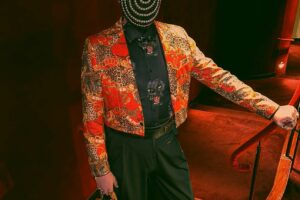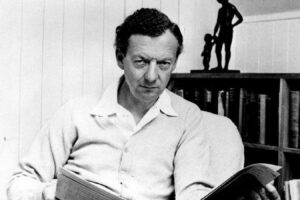
The diva must be a Diva in Adriana Lecouvreur. Fact. Certainly Cilea’s music is sumptuous if not subtle, and Colautti’s libretto colorful if not always coherent. But you absolutely need a prima donna that has captivated the audience before they even enter the theatre. If the role, more often than not, is sung by sopranos at the end of their careers, it would scarcely carry much clout for a fresher-voiced unknown.
Perhaps Angela Gheorghiu is not always a perfect vocal fit for Adriana in this Royal Opera House performance from 2010, but she wears the role like a couture gown.
Like Tebaldi before her at the Met, Gheorghiu convinced the Royal Opera House to mount the opera for her – unlike Ponselle, who left the Met after being denied a production. Relying on one singer this heavily is certainly not without risk. Tebaldi canceled most of her run due to vocal crisis, and in his memoirs, Bing spills more venom on Adriana than any other debacle in his tenure.
This is the kind of opera that tends to polarize: it boasts gorgeous melodies with endless high notes, as well ridiculous plot devices that would make the writers of any daytime soap blush. Based very, very loosely on historical figures, Adriana is a Parisian actress who is in love with a tall dark stranger named Maurizio. As it turns out, he is also having an affair with a (married) Princess to finance his political and military ambitions as the pretender to the Polish throne.
After lots of intrigues involving darkened rooms, locked doors, and mistaken identities, Adriana and the Princess have a showdown at the theatre (following the Act III ballet, naturally). Fast forward to Adriana’s birthday, and the actress is in a foul mood, which only worsens when she gets a present from Maurizio returning some flowers she had given him.
Only it turns out that Maurizio had regifted them to the Princess, who had sprinkled some poison on them, and then sent them back to Adriana. This is all far too much for even Adriana, and after a lovely aria, a gorgeous duet, and a bit of a mad scene, she expires in Maurizio’s arms.
Gheorghiu’s identification with the role is clear throughout. Her acting, emphatic, unrestrained, and stemming from an age before HD, creates a woman with a tenuous grasp on the boundaries between the stage and reality. The music sounds particularly beautiful in her voice, albeit lacks the ideal heft; even on DVD she sounds underpowered in the low passages. But she caresses the phrases, and the high notes float effortlessly over the orchestra. This is music that she loves, and she basks unashamedly in the role.
If this is a diva showcase, we are given a supporting cast that is even more tantalizing. Jonas Kaufmann delivers not only a vocally seductive performance, but perhaps one of the most in-depth portrayals of Maurizio on record. He understands the sleazy ambiguity of the political manipulator, a man who has all the women in his pocket, but is really only in love with his political ambitions.
Next to Gheorghiu, his interpretation seems practically naturalistic, and he has a knack for using the score to motive his physical movements. His signature darkly-hued tone suggests a man that is weighing every word, and never revealing his true face to anybody. The high notes – in particular the stunning pianissimi – are the real money shots, and leave no doubt as to why he is in such demand.
A princess from the moment she steps onto the stage, Olga Borodina captivates the eye even when she moves very little. Vocally, she keeps her large mezzo under tight control, spinning out a powerful wall of sound that remains beautifully centered. This is a woman to fear, but also one that deserves pity.
Alessandro Corbelli is a sympathetic Michonnet, a role that serves mostly as an observer despite some half-explained side plots involving poisons and diamonds. He has the unusual capacity to deliver a character role convincingly while actually singing the notes in the score. The voice has a burnished, friendly tone that serves as a dash of reason in this ornate confection. The rest of the supporting cast is equally adept, creating fun little moments that add beautifully to the melodrama.
Pulling everything together is Mark Elder at the podium. Despite the convoluted libretto, the score is no cakewalk for a conductor. The tempi and time signatures are constantly changing abruptly with the swelling of emotions, and Elder does a magnificent job keeping everybody together. After the last chords fade, the camera catches him mouthing a heartfelt “thank you” to the orchestra.
David McVicar manages to carve a narrative out the convoluted intrigues of Adriana with clarity. This is a reading filled with imagination, managing to avoid both the Regie and the Traditional camps without settling for a dingy compromise. The production team appears to have worked remarkably cohesively on this – a short documentary about the production shows a unity of vision that is reflected in the staging.
Dominating Charles Edwards’ set design is a baroque theatre that is used both as a literal theatre, and as a metaphor for the melodramatic antics of the characters. Brigitte Reiffenstuel creates beautiful period costumes, although they tend towards the overwrought in a ballet sequence that is already one of the weaker moments in the production.
Adriana has always been a bit of a guilty pleasure for me, next to the paperback pulp novels and the plastic box of Ferrero Rocher. Delicious, unnutritious, and perfect for a moment of respite on a rainy afternoon. This DVD is the perfect choice to curl up with and enjoy unabashedly: a stellar cast, a staging that is clever without being pretentious, and a cast that is clearly enjoying every moment of the production.



























Comments